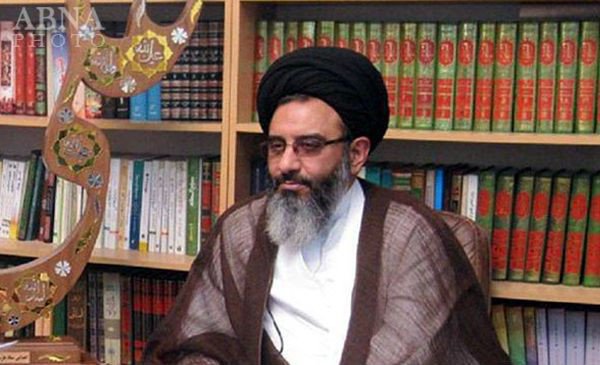
Dubai: Ahead of a new round of talks in Geneva, Iranian Supreme Leader Ali Khamenei appointed a personal representative to Damascus to remind the Syrians and Russians that Iran is still a major decision-maker in the Syrian conflict and should not be sidestepped or ignored.
Senior Iranian cleric Sayyed Abolfalz Tabatabai-Ashkezari arrived in Damascus on May 2, serving as a “special representative” of Grand Ayatollah Ali Khamenei.
The appointment, which received no mention in either Iranian or Syrian state media, raised eyebrows in Iranian opposition circles, who claimed that Khamenei only appoints “special representatives” to the 31 Iranian provinces and not to Arab cities in Iran’s orbit, like Damascus and Baghdad.
Iranian opposition member Shahine Gobadi, of the National Council of Resistance of Iran (NCRI), said that the mullah’s appointment was to lift the moral of Iranian troops in the Syrian battlefield “who have suffered heavy casualties and are now demoralised”. He added that Khamenei and his regime “are in a strategic quagmire [in Syria] from which they have no way back and no way forward”.
Speaking on the condition of anonymity, a Syrian government source said that Tabatabai-Ashkezari’s job was neither to inspire nor to counsel Iranian troops in Syria, nor to pay wages or do any of the day-to-day tasks currently being handled by the Iranian Embassy in Damascus. “Rather, his job was to symbolically remind both the Syrians and the Russians that Iran is still present in this axis and still has a say in what is being decided in Damascus. His job is to just spend some time in Damascus and be seen in the city, that’s all.”
Khamenei seemingly feels left out by Moscow and Damascus, whose cooperation increased since last September at the expense of Syrian-Iranian relations. The Supreme Leader of Iran wants to remind his Syrian and Russian allies that Iran’s approval is vital in any debate currently under way, whether military vis-a-vis the grand attack on Aleppo in the Syrian north, or political in the upcoming round of talks in Geneva.
“Khamenei’s man is here for an indefinite period, and is not accredited with the Embassy staff but, rather, staying as a guest of the Syrian Government.” Since his appointment on April 27, he has reached out neither to Syrian officials nor to members of the Syrian opposition.
Tabatabai-Ashkezari, aged 88, is 12 years Khamenei’s senior but considered a trusted confident since the 1960s. A low-profile Islamic cleric specialised in the history and genealogy of Shiite imams, he is a member of the Scientific Research Institute in Qom and a senior fellow at the city’s Quranic Office. Unlike other mullahs, he refused to assume any political office since 1979, preferring instead to concentrate on research and Islamic studies. He was born in the city of Babolsar on the Caspian Sea in Mazandaran province in 1928.












